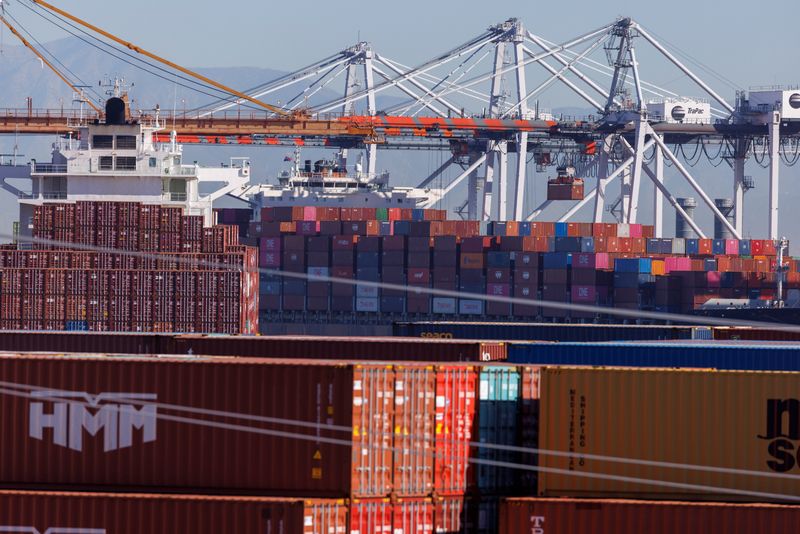WASHINGTON (Reuters) - U.S. import prices increased by the most in nearly two years in January amid rising costs for petroleum and other goods, a trend that if sustained, would be bad news in the fight against inflation.
Import prices jumped 0.8% last month, the largest gain since March 2022, after a revised 0.7% decline in December, the Labor Department's Bureau of Labor Statistics said on Thursday. Import prices were previously reported to have been unchanged in December. Economists polled by Reuters had forecast import prices, which exclude tariffs, would be unchanged in January.
In the 12 months through January, import prices fell 1.3% after decreasing 2.4% in December. Annual import prices have now dropped for 12 consecutive months, though the pace of decline is slowing. Government data this week showed that consumer prices picked up in January, driven by higher rental costs as well as price increases at the start of the year.
Financial markets have pushed back their interest rate-cut expectations to June from May. Since March 2022, the Federal Reserve has raised its policy rate by 525 basis points to the current 5.25%-5.50% range.
Imported fuel prices rebounded 1.2% in January. That followed a 7.7% plunge in December. The cost of imported food surged 1.5% after dipping 0.1% in the prior month.
Excluding fuels and food, import prices rose 0.7% after being unchanged in December. These so-called core import prices fell 0.6% on a year-on-year basis in January.
Prices for imported capital goods rose 0.4% last month after slipping 0.1% in December. The cost of motor vehicles, parts and engines jumped 0.8% after rising 0.1% in the prior month.

Consumer goods excluding automotives soared 1.1%. Prices of goods imported from China fell 0.3%. They dropped 2.9% on a year-on-year basis in January.
The report also showed export prices rebounded 0.8% after declining 0.7% in December. Export prices fell 2.4% on a year-on-year basis in January after decreasing 2.9% in December.